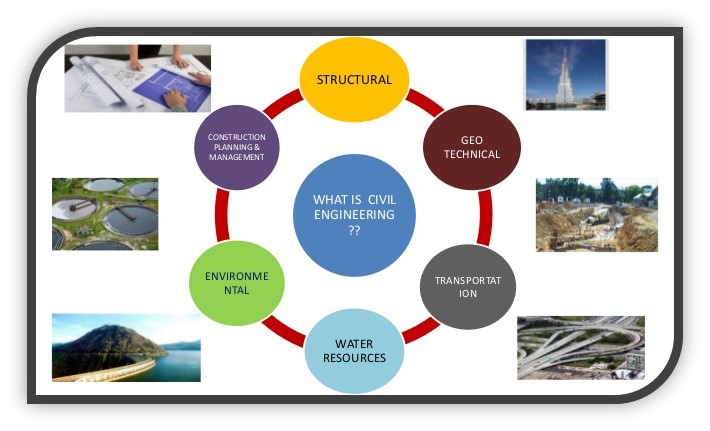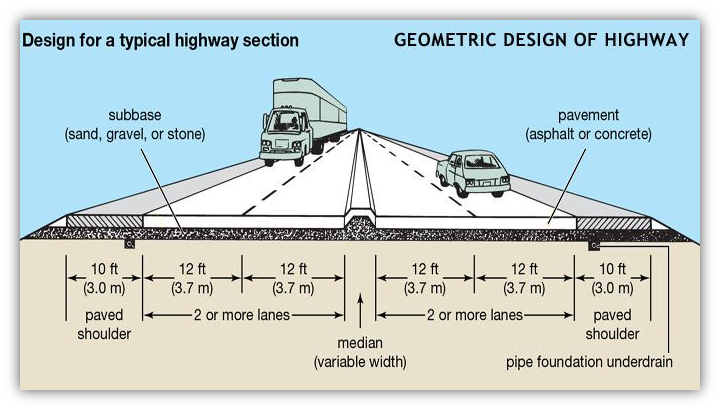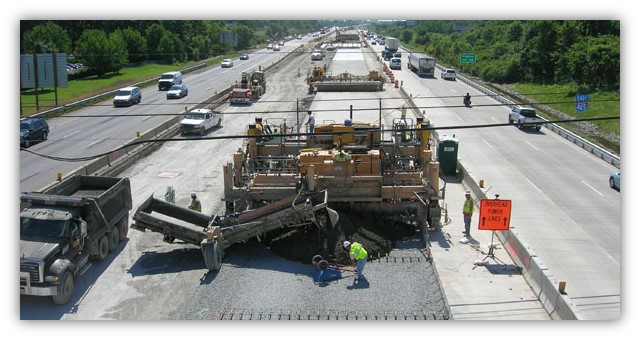Civil engineering is a professional engineering discipline that deals with the design, construction, and maintenance of the physical and naturally built environment, including public works such as roads, bridges, canals, dams, airports, sewerage systems, pipelines, structural components of buildings, and railways.
Civil engineering is traditionally broken into a number of sub-disciplines. It is considered the second-oldest engineering discipline after military engineering,and it is defined to distinguish non-military engineering from military engineering.Civil engineering takes place in the public sector from municipal through to national governments, and in the private sector from individual homeowners through to international companies.


Transportation engineering or transport engineering is the application of technology and scientific principles to the planning, functional design, operation and management of facilities for any mode of transportation in order to provide for the safe, efficient, rapid, comfortable, convenient, economical, and environmentally compatible movement of people and goods transport.
The planning aspects of transportation engineering relate to elements of urban planning, and involve technical forecasting decisions and political factors. Technical forecasting of passenger travel usually involves an urban transportation planning model, requiring the estimation of trip generation (number of purposeful trips), trip distribution (destination choice, where the traveler is going), mode choice (mode that is being taken), and route assignment (the streets or routes that are being used). More sophisticated forecasting can include other aspects of traveler decisions, including auto ownership, trip chaining (the decision to link individual trips together in a tour) and the choice of residential or business location (known as land use forecasting). Passenger trips are the focus of transportation engineering because they often represent the peak of demand on any transportation system.
Transportation engineering, primarily involves planning, design, construction, maintenance, and operation of transportation facilities. The facilities support air, highway, railroad, pipeline, water, and even space transportation. The design aspects of transportation engineering include the sizing of transportation facilities (how many lanes or how much capacity the facility has), determining the materials and thickness used in pavement designing the geometry (vertical and horizontal alignment) of the roadway (or track).
Operations and management involve traffic engineering, so that vehicles move smoothly on the road or track. Older techniques include signs, signals, markings, and tolling. Newer technologies involve intelligent transportation systems, including advanced traveler information systems (such as variable message signs), advanced traffic control systems (such as ramp meters), and vehicle infrastructure integration. Human factors are an aspect of transportation engineering, particularly concerning driver-vehicle interface and user interface of road signs, signals, and markings.

Highway Engineering is a specialised field within the discipline of Transportation Engineering. Highways are a major feature of any industrialised country and modern economies depend on them. Highway Engineering considers all aspects related to the design of the roads themselves, as well as how pedestrians are managed.
Highway Engineers study the traffic volumes and patterns to determine the best strategies to minimise traffic, prevent collisions and also limit damage to the road structures caused by the passage of vehicles. Highway Engineers also design highway systems with the aim of optimising traffic flow and safety for all vehicles that travel through them.
Interestingly, there has been a rapid rise of integrated electronic and automated systems in recent years, and Highway Engineering has expanded to include a new area of focus for this discipline on the implementation and use of intelligent transport systems that will eventually revolutionise the way humans travel day to day.

